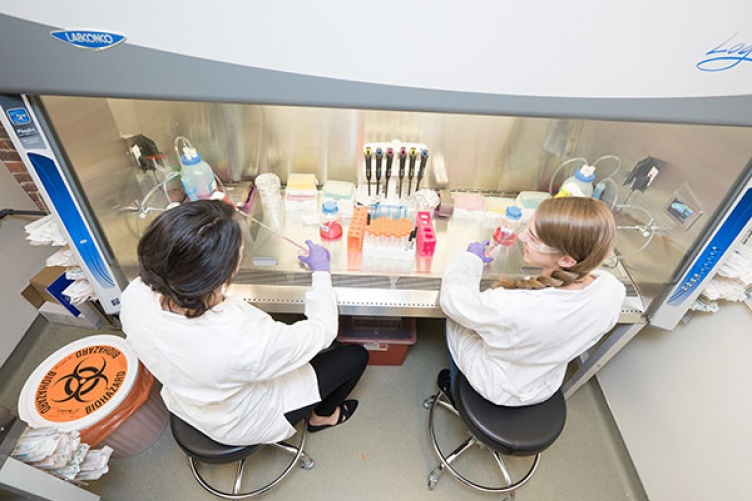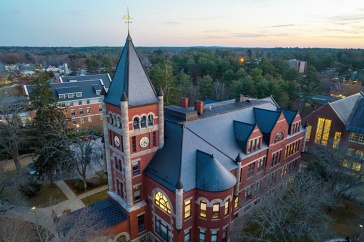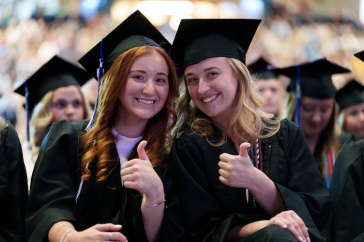
With the creation of the Advanced Regenerative Manufacturing Institute (ARMI), Manchester is at the center of the conversation around biofabrication. The emerging field combines biology-related research, computer science, materials science and engineering to create an industry for engineered tissue manufacturing, which will restore form, function and appearance to wounded soldiers and reduce the waiting time for organ transplant patients.
The University of New Hampshire at Manchester is leading the ARMI’s national education and workforce development efforts, which includes expanding its teaching and research facilities in the areas of bioengineering and cellular biology. In response to the projected needs of the biomanufacturing sector, UNH Manchester has developed an Introduction to Biotech Manufacturing course that explores the terminology and practices of the industry while emphasizing the business, regulatory, legal and scientific foundations in today’s commercial and government sectors.
A previous version of the course focused on the manufacturing of biologics, but it was revamped in spring 2018 to align more closely with the topics and initiatives of ARMI. Kyle MacLea, assistant professor of biotechnology, says the course examines tissue engineering more in-depth while also addressing the wider needs and impact of biomanufacturing in general.
“The new course was redesigned by working with experts on biotechnology products, which helped expand the biotech products covered in the course, giving students a much greater understanding of the full range of innovations happening in the industry today,” MacLea said. “Students now learn about all aspects of these biotech products, from how we make them to how they are regulated, marketed and studied.”
In addition to building a solid foundation for students considering a career in the biotech industry, MacLea said the course provides unique access into the knowledge and experience of ARMI partners in the regenerative medicine and tissue engineering fields.
The course was revamped with support from an ARMI curriculum grant, which will also provide financial support to students at other University System of New Hampshire institutions who wish to take the course at UNH Manchester. MacLea said they are also planning to adapt the course for other audiences, including high school students and current members of industry.
To better prepare students for the tissue engineering field, UNH Manchester’s Biotechnology program is continuing to expand its curriculum and add state-of-the-art equipment, including a 3-D bioprinter that fabricates human cells and tissues. Biotechnology major Alex Williams ’20 won the bioprinter in a raffle at an ARMI event and donated it to UNH Manchester, where it will be used in courses and for faculty and student research. MacLea said he anticipates additional equipment and courses with the continued expansion of UNH Manchester’s biotechnology training and education programs.
















































